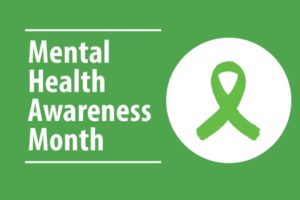A while back we did a short blog series on Anger Management (parts 1, 2, 3, 4). Due to their ongoing popularity we decided to make a number of short videos explaining the same concepts. See below for each video win the series. Thanks for visiting!
Know Your Why Recovery is proud to say Dylan Foster is back with another guest blog. Though this entry is not the typical type of content for Know Your Why, we felt it still fit well here as it has to do with change. In fact, this entry has to do with a speicifc type of change almost everyone needs to cope with at some point in their life…relocation. Read below for the article.
Know Your Why Recovery welcomes people from all walks of life, promoting positivity and awareness to those in recovery from mental health and substance use disorders. Reach out today for more info and see how we can help! admin@knowyourwhyrecovery.com

Stop Doing These Things Right Now to Improve Your Life
Do you have bad habits that are making your life worse? You might be surprised to learn that some of the things you’re doing every day are actually harming your personal life. If you want to improve your life, it’s time to stop these unhealthy habits!
Know Your Why Recovery shares some things you should stop doing right away to improve your personal life.
Did you know that vision and mental health are linked? MyVision.org, an awareness website that aims to educate people of all ages with tips and recommendations on how best to take care of their eyesight, contacted Know Your Why and shared a helpful guide on mental health and vision. Not only do they explore the link between the two, they provide coping skills, tips, and resources should you be in need. You can find the guide HERE as well as on our resource page. Enjoy!
Guest Blog-“A Long Road…”

Know Your Why Recovery welcomes author and Dadmented founder Craig Lucas. Craig has been generous enough to share his story of trauma, music, mental illness, fatherhood, and redemption. Read below for more.
The 4 Ds for Cravings
Quitting smoking or vaping? Trying to stop alcohol or other drug use? Have you heard of the 4 Ds?
The 4 Ds for cravings are most widely used for management of nicotine/tobacco cravings, however, many have applied them successfully to manage cravings for all types of substance use. Below is some basic information about the 4 Ds and then our YouTube video discussing the 4 Ds in more detail. Enjoy and remember to subscribe to our channel for more content like this.
New YouTube Playlist!!!
Have you been to our YouTube channel lately?
We have created a new playlist, Relaxation and Meditation. This playlist will provide video/audio meant to be a calming experience or function as background noise, such as the lovely sounds of a running stream.
While on our channel check out our other playlists including shorts, our Know Your Term series, guest interviews, and other resources.
Don’t forget to subscribe in order to get alerted to new content if you enjoy what you see please like, comment, and share the posts to help spread the joy!
Thanks for all of the support.
Head on over to our newest YouTube post for Know Your Term Episode 8. In this episode we will explore Medication Assisted Treatment (MAT), what it means, what are the benefits, and general information about it. Don’t have a ton of time? No worries! The video in under three minutes long.
Tips for Managing Stress
Everyone experiences stress. Stress can come from positive experiences and changes, as well as, negative experiences or changes. The existence of stress is not necessarily problematic, in fact, stress has many functions including helping you to avoid real threats, motivation, to help you focus, and improve performance. Experiencing high levels of stress over long periods of time is what is dangerous to our mental and physical well being. You can read more about the purpose and effects of stress from WebMD here.
Keeping that in mind, it makes sense for us to manage our stress levels to ensure our physical and mental well being. The following are some tips you can utilize to help manage stress:
